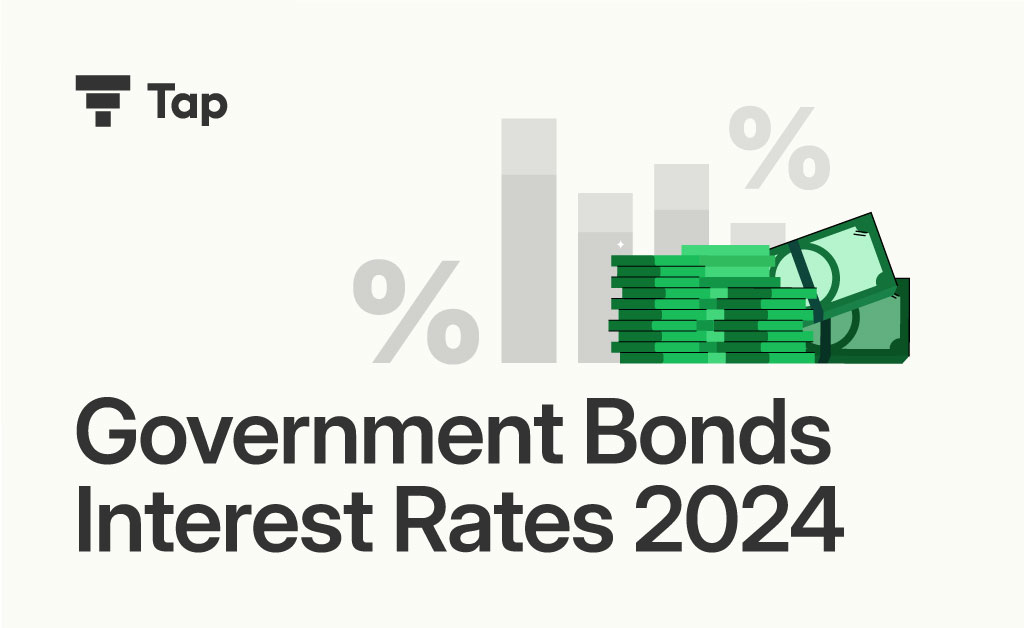Understanding Government Bonds and Their Interest Rates

Government bonds are a cornerstone of secure investments, offering stability and predictable returns. For investors in India, government bonds present a valuable opportunity to grow wealth while minimizing risk. This blog will delve into what government bonds are, their interest rates, how to invest in them, and a list of notable government bonds in India. We will also address frequently asked questions (FAQs) and provide a call to action (CTA) to help you get started with government bond investments.
What are Government Bonds?
Government bonds are debt securities issued by the government to support government spending and obligations. When you invest in government bonds, you are essentially lending money to the government in exchange for periodic interest payments and the return of the bond’s face value upon maturity. Government bonds are known for their safety, as they are backed by the government and carry low default risk.
Types of Government Bonds in India
India offers a variety of government bonds catering to different investment needs. Here is a list of prominent government bonds in India:
- Treasury Bills (T-Bills)
- Government of India Savings Bonds
- Sovereign Gold Bonds (SGBs)
- State Development Loans (SDLs)
- Fixed Rate Bonds
- Floating Rate Bonds
- Capital Gain Bonds
Government Bonds Interest Rates
The interest rate on government bonds varies based on the type and tenure of the bond. For instance:
- Treasury Bills: Short-term instruments with maturities of 91 days, 182 days, and 364 days, typically offering lower interest rates due to their short duration.
- Government of India Savings Bonds: These bonds have fixed interest rates, such as the 7.75% Savings (Taxable) Bonds.
- Sovereign Gold Bonds (SGBs): Interest rates for SGBs are generally fixed at 2.5% per annum, paid semi-annually.
- State Development Loans (SDLs): The interest rates on SDLs are generally higher than central government bonds, reflecting the higher risk.
The Reserve Bank of India (RBI) periodically revises these rates based on economic conditions.
How to Invest in Government Bonds
Investing in government bonds can be done through multiple channels:
- Primary Market: Purchase during auctions conducted by the RBI. Retail investors can participate via non-competitive bidding through their banks or brokerage firms.
- Secondary Market: Buy existing government bonds through stock exchanges or over-the-counter (OTC) markets.
- Mutual Funds and ETFs: Invest in government bonds indirectly through mutual funds or exchange-traded funds (ETFs) that focus on government securities.
Why Invest in Government Bonds?
Government bonds are an excellent addition to a diversified investment portfolio due to their safety and steady returns. Here are some benefits of investing in government bonds:
- Capital Preservation: Protect your principal investment with minimal risk.
- Regular Income: Receive periodic interest payments.
- Tax Benefits: Certain government bonds offer tax incentives.
- Liquidity: Easily buy and sell in the secondary market.
To learn more about Government Bonds In India read this article: https://tapinvest.in/blog/government-bonds-india/
Frequently Asked Questions On Government Bonds
1. What is the minimum investment amount for government bonds in India?
- The minimum investment amount varies depending on the type of bond. For instance, Treasury Bills can be purchased for as little as Rs. 25,000.
2. Are government bonds taxable?
- Yes, the interest earned on government bonds is subject to taxation. However, some bonds, like the Sovereign Gold Bonds, may offer tax benefits on capital gains.
3. How are government bonds different from corporate bonds?
- Government bonds are issued by the government and are considered safer, while corporate bonds are issued by companies and generally offer higher returns but come with higher risk.
4. Can NRIs invest in government bonds in India?
- Yes, Non-Resident Indians (NRIs) can invest in certain government bonds in India, subject to specific regulations and guidelines.
5. What happens to my investment if I sell a government bond before maturity?
- If you sell a government bond before maturity, you may gain or lose money depending on the market price at the time of sale. The interest accrued until the sale date will also be paid.
Conclusion: Take the Next Step in Your Investment Journey
Government bonds offer a secure and reliable investment option, especially for conservative investors looking to preserve capital while earning steady returns. With a variety of bonds available and multiple ways to invest, government bonds can be a valuable addition to your investment portfolio.
Ready to invest in government bonds and secure your financial future? Visit Tap Invest today and start building a stable, diversified portfolio with government bonds.
